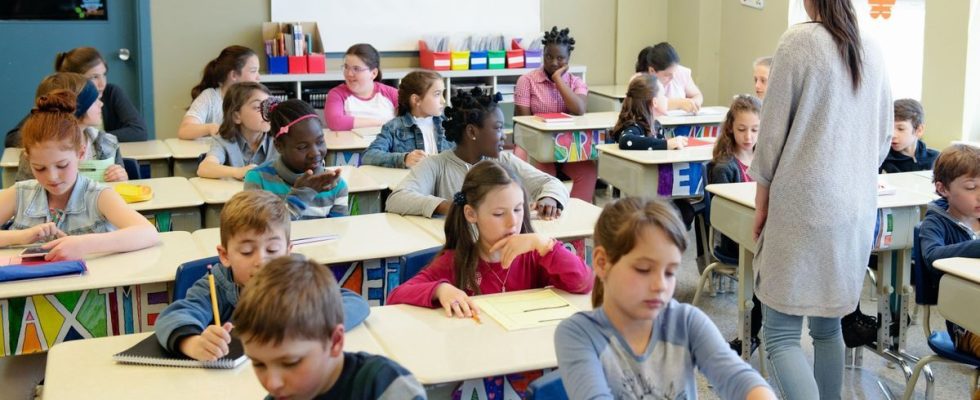Published on
Updated
Reading 3 min.
Better memorize sounds and rhythms thanks to a video game, facilitate reading using “pulsed” light or special glasses: faced with the widespread disorder of dyslexia, technologies are being developed at all costs, under the watchful eye of speech therapists .
“Many companies are embarking on this search for tools” in a context of lack of professionals in France. With “around 30 speech therapists per 100,000 inhabitants, this is not at all enough!“, underlines Sarah Degiovani, president of the national federation of speech therapists (FNO).
Waiting times are included “between six months and three years depending on the territory”explains to AFP this specialist in so-called “dys” disorders.
Specific fundamental learning disorders concern “at least 5 to 6% of children, i.e. one child per class“, according to Public Health France. They bring together different cognitive disorders (dyslexia, dysphasia, dyscalculia, dyspraxia, dysorthography) which require a care and support project.
While waiting for a possible distant appointment with the speech therapist, a video game aims to serve as a “home relay”. This interactive application, designed by the start-up Poppins in cooperation with the French video game giant Ubisoft, integrates language games and rhythm games. It can be downloaded to tablets and mobile phones.
“Rhythmic skills are weaker in dyslexics. However, rhythm is essential for phonological competence and taking off in reading“, Catherine Grosmaître, neuropsychologist and speech therapist, explained to the press on Tuesday.
The results of a clinical study (training of 154 children aged 7 to 11, with comparison with a placebo game, without speech therapy monitoring) show progress in reading accuracy and speed, according to this head of the reference center for speech disorders. language and learning at the Necker pediatric hospital (AP-HP).
On the user side, the president of the French Federation of Dys (FFDys) Nathalie Groh evokes the “serious”, “fun” and “reassuring” nature of the system limited to 20 minutes. “A good idea” also for the Dyslexiques de France association.
Poppins, which has established partnerships with several mutual societies, wants to carry out new research projects on the impact of gaming in addition to speech therapy monitoring, while awaiting support from social security.
Products not refunded
More controversial, reading aid glasses were developed by the company Abeye located in Beaune (Côte-d’Or). Their goal is to filter out “mirror images” that make reading difficult, using strobe light invisible to the naked eye.
It’s a bit like “write on the board without first erasing the previous lesson“: Lexilens technology “clears the picture” and “words and letters appear much sharper“, explains Abeye’s boss, Michael Kodochian, to AFP.
The company expects a “validation of the personal protection committee“, a prerequisite for launching a clinical study, but the accessory is already “used by more than 5,000 people worldwide“, underlines the entrepreneur backed by a network of opticians.
Among the young adults of the Dyslexiques de France association, some “no longer do without it,” says president Concepcion El Chami.
The FFDys is more circumspect about these commercially available glasses.even before scientifically proving that it works“by settling for a single satisfaction study.”Families stopped speech therapy thinking that glasses could replace treatment“, deplores its president Ms. Groh.
Other products costing several hundred euros aimed at correcting the image superposition effect are also available in mutual networks, supported by favorable opinion surveys.
This is the case of a lamp “sold 3,000 copies” two years after its launch by the Norman start-up Lili for Life which, like Abeye, also focuses on computer screens for dyslexics.
“The majority of tools used by dyslexics are not originally developed for them“, such as voice input of texts, ChatGPT to correct mistakes and rephrase texts, note-taking applications or audio books, underlines Rémi Munier, Dyslexics digital representative in France.
Eventually, “the right tool is the one the person uses“.
